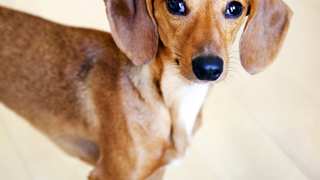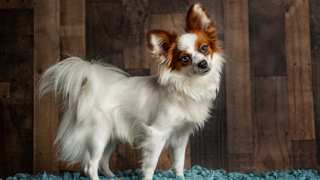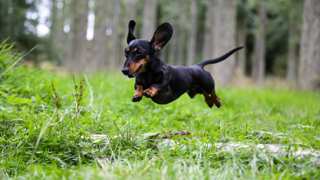Like all breeds, the Chiweenie diet will need to provide plenty of animal proteins and carbohydrates for energy, vitamins and minerals for digestive and immune health, and omega fatty acids for coat and skin wellness. The best Chiweenie dog food, then, is premium dry kibble. This high-quality food, while more expensive and difficult to obtain, provides the dog with a much-needed well-balanced diet--and since the Chiweenie can be prone to dental issues, the dry kibble is much better at keeping these dogs' teeth in good shape.
The good news: this toy-sized crossbreed doesn't eat much at all. An adult Chiweenie, depending on its age, size, and activity level, will only need about 1¼ cups of premium dry food per day, divided into two meals. A Chiweenie puppy, again depending on age, will eat even less: from ¾ to one cup per day. And puppies should be fed three times per day (not twice) until six months of age--which means that as a young pup, a typical Chiweenie meal will only consist of a few pieces of dry kibble.
For further info about feeding your Chiweenie from puppyhood through maturity, refer to the following:
Dog AgeDog WeightFood TypeAmountFrequency6-7 Weeks1 lbDry (Puppy formula)4-5 pieces3x/day3 Months2 lbsDry6-8 pieces3x/day5 Months5 lbsDry0.25 cups3x/day8 Months8 lbsDry* (Puppy/Adult)0.5 cups2x/day10 months+10 lbsDry (Adult formula)0.6 cups2x/day*--Around this time, transition to adult food by first mixing in a little adult formula with the puppy formula. Over the course of a week, with each meal add a bit more adult food to the mixture, until the dog is eating it entirely.
If possible, try and stick to the above-listed portions. If constantly overfed (and under-exercised), these dogs will become obese--and a fat Chiweenie will have joint, digestive, and breathing issues, not to mention a possibly shortened lifespan. You can help control your Chiweenie's weight by establishing consistent feeding and exercise schedules, by not feeding the dog table scraps (healthy treats only!), and by not leaving food in the dog's bowl all the time, thereby allowing it to eat anytime it wants. It's better to put your Chiweenie's bowl down only at mealtimes--then pick it up a few minutes after the dog begins eating.
If you're worried your Chiweenie is overweight, give the dog this simple test: run a hand along its side, and if you can't feel any ribs, it's diet time. Reduce the dog's daily food consumption by one-fourth, and add an extra walk or play period to its daily exercise schedule.



